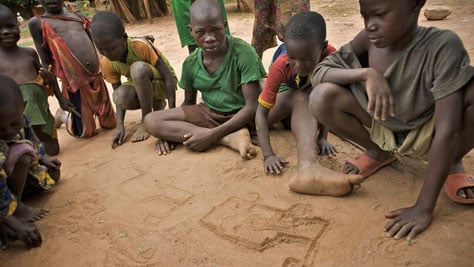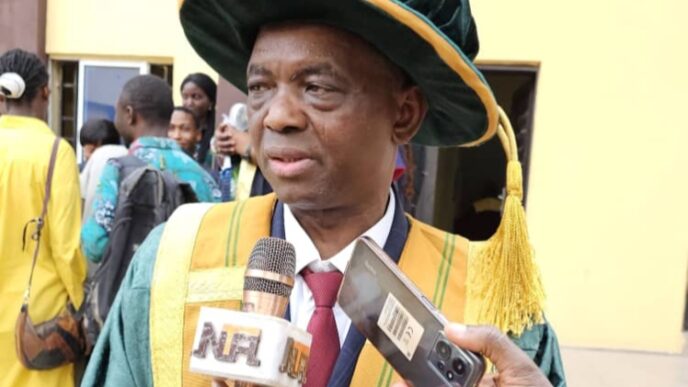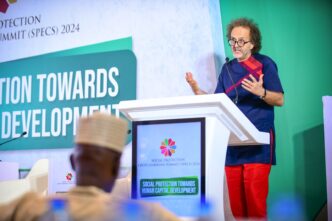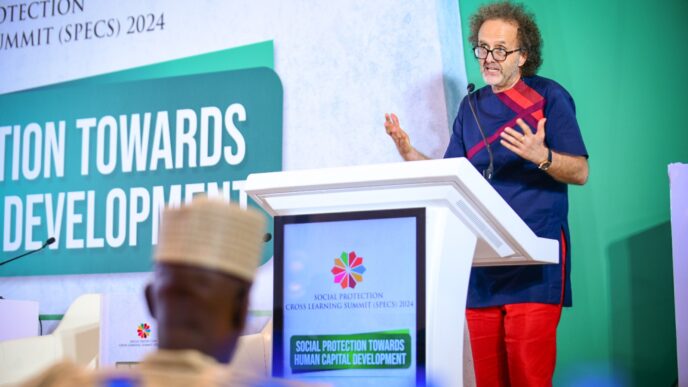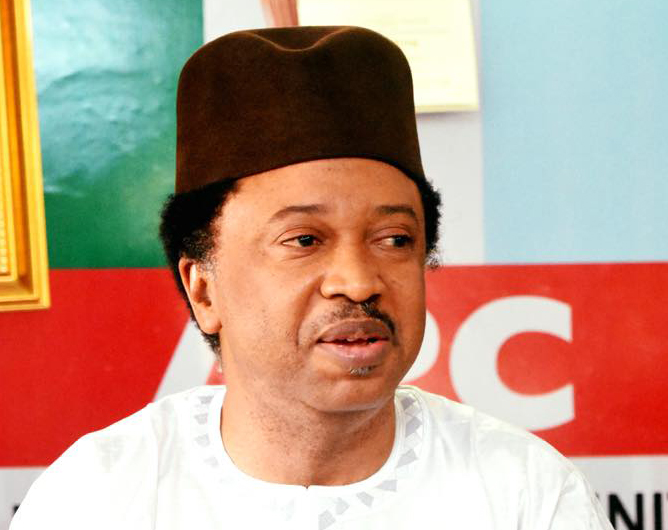Children drawing tanks in the sand in front of a school in Patcho, near Kaga-Bandoro, Central African Republic. Attacks by armed groups, banditry and inter-communal tensions in the country have had a devastating impact on the civilian population, especially children.
The federal government and the United Nations Children’s Fund (UNICEF) have expressed commitment to enhancing social protection interventions for Nigerian children amid rising poverty.
Wale Edun, the minister of finance and coordinating minister of the economy, spoke in Abuja on Friday at the third edition of the social protection cross summit.
The federal ministry of finance, in collaboration with the Social Protection Development Partner Group (DPG), organised the summit.
Edun said the government is determined to remove all barriers limiting access to social protection services in the country.
Advertisement
“As a result, the government is engaged to implement, with the support of relevant stakeholders, including the social protection development partner group, the agreed action points from the summit,” he said.
Also speaking, Cristian Munduate, UNICEF representative in Nigeria, said social protection is important in realising the potential of children.
“However, there is a need to ensure stronger linkages between social protection and essential social services with a focus on health, education, and nutrition,” Munduate said.
Advertisement
“Despite advancements, social protection coverage remains low, with only seven percent of children covered. Coordination mechanisms are weak, leading to fragmentation and inefficiency.
“Therefore, the summit aims to generate actionable insights and foster collaboration among key players to enhance coverage, coordination, and financing of social protection interventions.”
In a communiqué issued at the end of the summit, development partners held that Nigeria faces significant challenges in human capital development and deprivations in health, education, nutrition, water, hygiene, sanitation, and child protection.
They noted that the situation underscores the urgency for comprehensive and effective social protection strategies.
Advertisement
“In response to these challenges, the government of Nigeria introduced a cash transfer program, providing 25,000 Naira over a three-month period to poor and vulnerable households,” the communiqué reads.
“This initiative aims to alleviate immediate economic pressures and mitigate the socio-economic impact of recent economic reforms.
“Our goal is to create a comprehensive support network that addresses the multifaceted needs of children and families, ultimately leading to improved outcomes in health, education, and overall well-being. We must work together to bridge gaps and strengthen coordination.”
Advertisement
Advertisement
Add a comment
